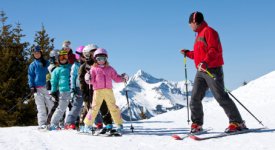|
This is a full-time (1.00 FTE), 12-month, fixed-term (annual reappointment) Assistant Professor of Practice position that will serve the seafood and aquatic food products industry throughout Oregon, but especially along the coast of Oregon. The position is located in Astoria, Oregon at the Seafood Research and Education Center. This position resides with the Coastal Oregon Marine Experiment Station (COMES-Astoria) with an academic home in the Department of Food Science & Technology in the College of Agricultural Sciences at Oregon State University.
The incumbent is expected to provide leadership and vision for applied research and to extend programming that serves the needs of seafood and aquatic food harvesters, producers, processors and allied industries throughout Oregon. Programs will emphasize sustainable seafood processing related to maximizing product utilization with minimal water, carbon inputs.
This faculty member embeds the commitment of the university to a collaborative and inclusive community in all interactions and duties performed. This individual ensures that educational programs and outreach activities serve diverse populations, including those that have been historically marginalized/excluded from participation
70% Community Outreach and Education, Applied Research, and Technology Demonstration
- Conduct applied research activities in the area of fish protein technology and other innovative processing technologies with a focus on resilient and sustainable aquatic food processing systems. Establish outreach programming and demonstration projects in seafood and aquatic food science and related areas that emphasize multi-tactic practices, systems approach to sustainable food processing, and novel technologies. Collaboration is expected with colleagues in other supporting disciplines (engineering and fisheries).
- Collaborate with professional colleagues, industry members, and field representatives to develop and implement applied research programs in sustainable seafood and aquatic food systems.
- Communicate applied research progress and results to stakeholders and provide educational opportunities using peer reviewed publications, professional meetings, commodity group presentations, outreach events (workshops and trainings) and electronic communication (i.e., websites, publications, video conferencing and other online methods).
- Keep abreast of, and interpret scientific, technological and industry developments and trends at state, regional, national, and international levels.
- Develop, maintain, and provide broad expertise related to seafood and aquatic foods policies and regulations, and other pertinent areas with a focus on supporting sustainable food processing systems.
- Evaluate and document applied research and outreach impacts of programs and communicate the results to target audiences.
- Investigate and apply available and emerging scale appropriate technology and processing practices related to seafood and aquatic food science, advancing adaptation and resilience for Oregon’s changing climate and ocean conditions.
- Serve as an investigator on a USDA-NIFA Hatch collaborative or Hatch multistate project.
- Serve as the main fish protein science subject matter expert for Oregon and regionally and respond to questions from fishers, processors, industry consultants, and other stakeholders.
- Develop, maintain, and provide broad expertise related to surimi and surimi seafood, sustainable seafood processing systems and other pertinent areas with a focus on efficient use of food and water resources.
- Develop and engage efficient methods for addressing high volumes of topically repetitive clientele inquiries. Include systems of inquiry screening and response utilizing personal expertise, Ask an Expert (Ask Extension) portal, expertise of other OSU faculty.
- Coordinate outreach and educational activities with fisheries, seafood and aquatic food research faculty at COMES and other OSU research facilities within the State. Cooperate with other OSU faculty on research priorities, demonstration trials and distribution of information about research findings.
- Collaborate with existing organizations who provide similar programs to increase access to and decrease duplication of resources by harvesters, producers and seafood and/or aquatic food processors.
- Develop fact sheets, outreach publications, website content and other materials that address sustainable and resilient seafood science needs specific to Oregon producers, harvesters, and processors.
- Include a diversity of perspectives in program content.
- Secure funding and other resources (through grants, contracts, gifts, fees, etc.) to expand the capacity of programs offered by this position, as appropriate.
- Market programs and services effectively, and ensure all persons have access without discrimination.
- Regularly evaluate and document evidence of program accomplishments. Produce plans of work, reports of accomplishments and similar reports as requested. Develop and follow a professional development plan. Participate in appropriate professional and scientific organizations.
- Participate in professional development opportunities that enhance the educational programming capacities and administrative leadership.
- Work to increase the diversity of learners who may serve as research assistants, undergraduate researcher, etc. where applicable.
- Advise and mentor graduate students, research assistants, and undergraduate students involved in the incumbent’s research program.
20% – Scholarly Outcomes:
- Assigned duties for this position are expected to result in scholarly outcomes. Scholarly and creative work is intellectual work whose significance is validated by peers and that is communicated through a variety of mediums. Emphasis in scholarship should be placed on outcomes that recognize activities as a professional practitioner in community settings as defined in this position description.
- Individually and as part of teams, secure outside grants, and contracts and/or service fees to support and enhance position-appropriate educational and applied research programs and service activities, as appropriate.
- The faculty member will be expected to meet all reporting requirements of the funding sources, department, college, and university.
- To achieve promotion, scholarship for this position must include peer reviewed materials that are durable and findable in the web environment.
10% – Service
- Faculty are expected to be collegial members of their units, and to perform appropriate service that contributes to the effectiveness, diversity and inclusiveness of their departments, colleges, the university, and their professions. University service includes serving the University-wide community of research, teaching, and extension faculty including development of community resources. Professional service includes, but is not limited to, reviewing manuscripts for journals and proposals for national funding agencies, and involvement in- and leadership of professional organizations.
- The faculty member is expected to represent unit at commodity meetings and other state, regional advisory committees appropriate to position responsibilities.
REQUIREMENTS
- Master’s degree in food science, agricultural and/or biosystem engineering, meat science, or a field closely related to the duties of the position. Degree must be completed by application date.
- Demonstrable commitment to promoting and enhancing diversity and inclusion.
- Demonstrated informal or formal teaching skills.
- Demonstrated ability to work as a team member with other professionals and volunteers.
- General ability to use common computer technology, including proficiency with information technology, data management, web sites and social media.
- Ability to work independently with minimal supervision.
- Ability to gather, interpret and communicate clearly and effectively broad-based scientific information with community and industry stakeholders as well as the basic working knowledge about how to conduct applied field research.
- Ability to lead groups, create partnerships, and to plan, organize, evaluate, manage, and delegate details associated with program management.
|


 View the Latest Cool Job Listings
View the Latest Cool Job Listings Sharing Economy
Sharing Economy Ski - Snowboard Jobs
Ski - Snowboard Jobs Cruise Ship Jobs
Cruise Ship Jobs